British Foreign Secretary Liz Truss refused to admit that Saudi Arabia is an authoritarian regime and would not acknowledge a single human rights abuse that the Gulf monarchy has committed, repeatedly evading questions by a member of parliament.
She even declined to condemn Saudi Arabia’s execution of 81 people on one day.
The top UK diplomat claimed “our overall objectives [are] promoting freedom and democracy around the world,” and she boasted of a global “Network of Liberty” being built by Britain.
But at the same time, Truss praised the authoritarian Persian Gulf monarchies as key “partners” and “important allies of the United Kingdom.” She even noted that the UK is negotiating a trade deal with the Gulf Cooperation Council (GCC).
While celebrating the Saudi dictatorship, the British foreign secretary demonized China, Russia, and Iran as authoritarian, calling them “malign actors” and “threats” to so-called Western democracies.
When pressed, Truss admitted that this clear double standard is rooted in economics, and specifically the fossil fuel industry.
“What I’m focused on is making sure that we are dealing with the major threats to the world,” she said. “The number one threat we’re dealing with at the moment is the threat from Russia. In order to do that, we need to make sure that we have alternative energy sources. One of the key sources of energy is the Gulf region.”
British foreign secretary celebrates alliance with authoritarian regimes in Saudi Arabia, Rwanda, Poland
Liz Truss made these comments in response to questions from the UK Parliament’s Foreign Affairs Committee, which held a hearing on June 28 to discuss the work of the UK Foreign, Commonwealth and Development Office.
In the meeting, a member of parliament asked Truss seven times to name a human rights concern that she raised with a leader of a Gulf monarchy. She was unable to identify a single one, evading the questions.
And the Saudi monarchy was not the only autocratic regime that Truss praised. While attacking China, Russia, and Iran for supposed authoritarianism, Truss reaffirmed Britain’s steadfast support for the dictatorship in Rwanda and the far-right authoritarian regime in Poland.
“Of course, the United Kingdom and Rwanda have a very close relationship, which the Foreign Office is responsible for,” she boasted.
“Rwanda is a country where we are building a series of partnerships with Rwanda on a number of issues,” Truss added.
Rwanda’s authoritarian leader Paul Kagame has governed the country with an iron fist for more than two decades, thanks to staunch Western support.
Truss also boasted of the UK’s close partnership with Poland, which has an authoritarian far-right government.
When discussing the need to expand military spending and invest in more weapons in order to fight Russia, the British foreign secretary proudly noted, “We’re also working on this with our allies and partners, say, for example, Poland, who we have a defense agreement with.”
Even mainstream Western media outlets, like the UK government’s own BBC, have acknowledged that Poland, an EU and NATO member, is authoritarian.
UK top diplomat says Russia and China are ‘key threats’
While praising the authoritarian Western-backed regimes in Saudi Arabia, Rwanda, and Poland, Truss criticized the “geopolitical efforts by malign actors,” which she identified as Russia and China.
She referred to both Eurasian nations as “key threats,” and called for strengthening and expanding NATO, including into the Pacific (very far from the North Atlantic region).
“Russia is our number one immediate threat, although I do believe that in the long term we should be very, very concerned about China,” Truss said.
“NATO needs to be more actively looking at the threat from China,” she emphasized.
Liz Truss discusses Russia and Ukraine with Saudi monarchy
This June 28 parliamentary hearing was by no means the only time that British Foreign Secretary Liz Truss has celebrated the Saudi monarchy as an ally against Russia.
On March 23, Truss tweeted that she had spoken with Saudi Foreign Minister Faisal bin Farhan al-Saud, a member of the royal family, about “Russia’s egregious use of violence in Ukraine” and the importance of a coordinated “humanitarian response.”
Truss made no mention of the 81 people who were executed by the Saudi monarchy on March 12, less than two weeks before their friendly call.

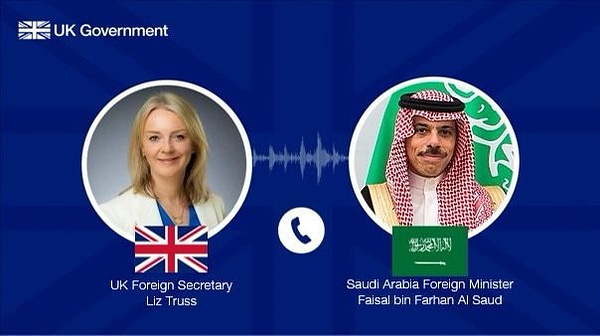
Even Human Rights Watch (HRW), which is notorious for its extreme pro-Western bias, loudly condemned Riyadh’s mass execution, noting, “Rampant and systemic abuses in Saudi Arabia’s criminal justice system suggest it is highly unlikely that any of the men received a fair trial.”
HRW pointed out that 41 of those executed were members of the Shia Muslim minority, “who have long suffered systemic discrimination and violence by the” Saudi regime.
And on March 2, just three weeks before Truss’ call, HRW reported that a “Saudi man who was 14 at the time of his alleged crime and whose previous death penalty conviction was overturned by the Saudi Supreme Court was sentenced to death again.”

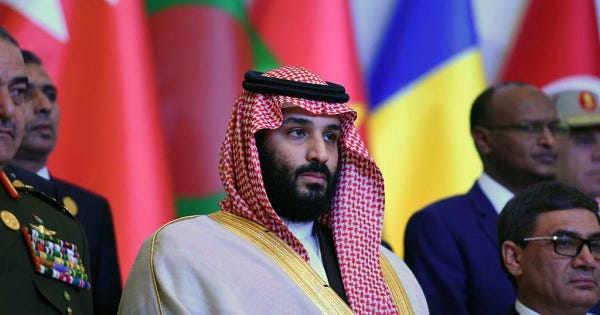
On February 25, a day after Russia invaded Ukraine, Truss tweeted that she discussed the issue with representatives of Saudi Arabia, the UAE, Poland, and Hungary, all of which have authoritarian governments.

Member of parliament grills Foreign Secretary Liz Truss over British support for Saudi monarchy
In the June 28 parliamentary Foreign Affairs Committee hearing, Labour MP Chris Bryant grilled Liz Truss for four minutes over the British government’s support for the Saudi monarchy.
A transcript of their heated exchange follows below:
CHRIS BRYANT: You were talking about authoritarian regimes earlier, and you have said that the UK should be a robust counterweight to authoritarian regimes, and that we are ending our dependency on authoritarian regimes for energy. How would you describe the Gulf states?
LIZ TRUSS: I would describe the Gulf states as partners of the United Kingdom. We’re currently negotiating a trade deal with the GCC. Now is every country that we work with exactly in line with United Kingdom policy on everything? No, they’re not. But they are important allies of the United Kingdom.
CHRIS BRYANT: Hang on, Mohammed bin Salman is responsible for the murder of Jamal Khashoggi, no? Yeah?
LIZ TRUSS: I, what I would say, is that –
CHRIS BRYANT: Is he responsible?
LIZ TRUSS: Saudi Arabia is an important partner of the United Kingdom.
CHRIS BRYANT: 81 executions, all on one day in Saudi Arabia. And you don’t think that that’s an authoritarian regime?
LIZ TRUSS: What I’m focused on is making sure that we are dealing with the major threats to the world. The number one threat we’re dealing with at the moment is the threat from Russia. In order to do that, we need to make sure that we have alternative energy sources. One of the key sources of energy is the Gulf region. We’re not dealing in a perfect world. We’re dealing in a world where we need to make difficult decisions. And I think it is right that we build that closer trading relationship with the Gulf states.
CHRIS BRYANT: If a country is an authoritarian regime, it’s fine to do business with it as long as the authoritarianism is only within its own borders, is that right?
LIZ TRUSS: What we’re facing with Russia is a regime that is actively seeking to invade sovereign nations and create a greater Russia, recreate the former Soviet Union. What we’re seeing with China –
CHRIS BRYANT: But we went hand in cap to them for 12 years, and now we’re doing the same with Saudi Arabia.
LIZ TRUSS: Well, I think that was wrong. The approach that was taken to Russia by the West.
CHRIS BRYANT: You supported it.
LIZ TRUSS: It was wrong.
CHRIS BRYANT: In the Gulf trade document that you just published, you say the government will continue to hold those who violate human rights to account. How are you doing that in the Gulf States at the moment?
LIZ TRUSS: Well, these issues are raised regularly with the relevant ministers and leaders who we meet in the Gulf states.
CHRIS BRYANT: You have personally?
LIZ TRUSS: I have personally, yes.
CHRIS BRYANT: Well, your spokesman said that you hadn’t. So what was the last human rights issue that you raised with a Gulf state leader?
LIZ TRUSS: I would have to come back to the committee on the precise timing of that.
CHRIS BRYANT: Well anything, just tell us anything that you have said on human rights.
LIZ TRUSS: Well I certainly have raised it when I was in –
CHRIS BRYANT: Go on, tell us one now.
LIZ TRUSS: I’m just trying to remember my most recent visit. But I can assure you, I’ve raised it, and I will write to you with the details.
CHRIS BRYANT: You can’t remember a single human rights issue that you’ve raised with a Gulf state leader?
LIZ TRUSS: Well, I’ve raised particular issues when I’ve been in the Gulf.
CHRIS BRYANT: Well name one.
LIZ TRUSS: I’m not going to go into all the details of private conversations, which I will come back to you on in due course.
CHRIS BRYANT: Name one.




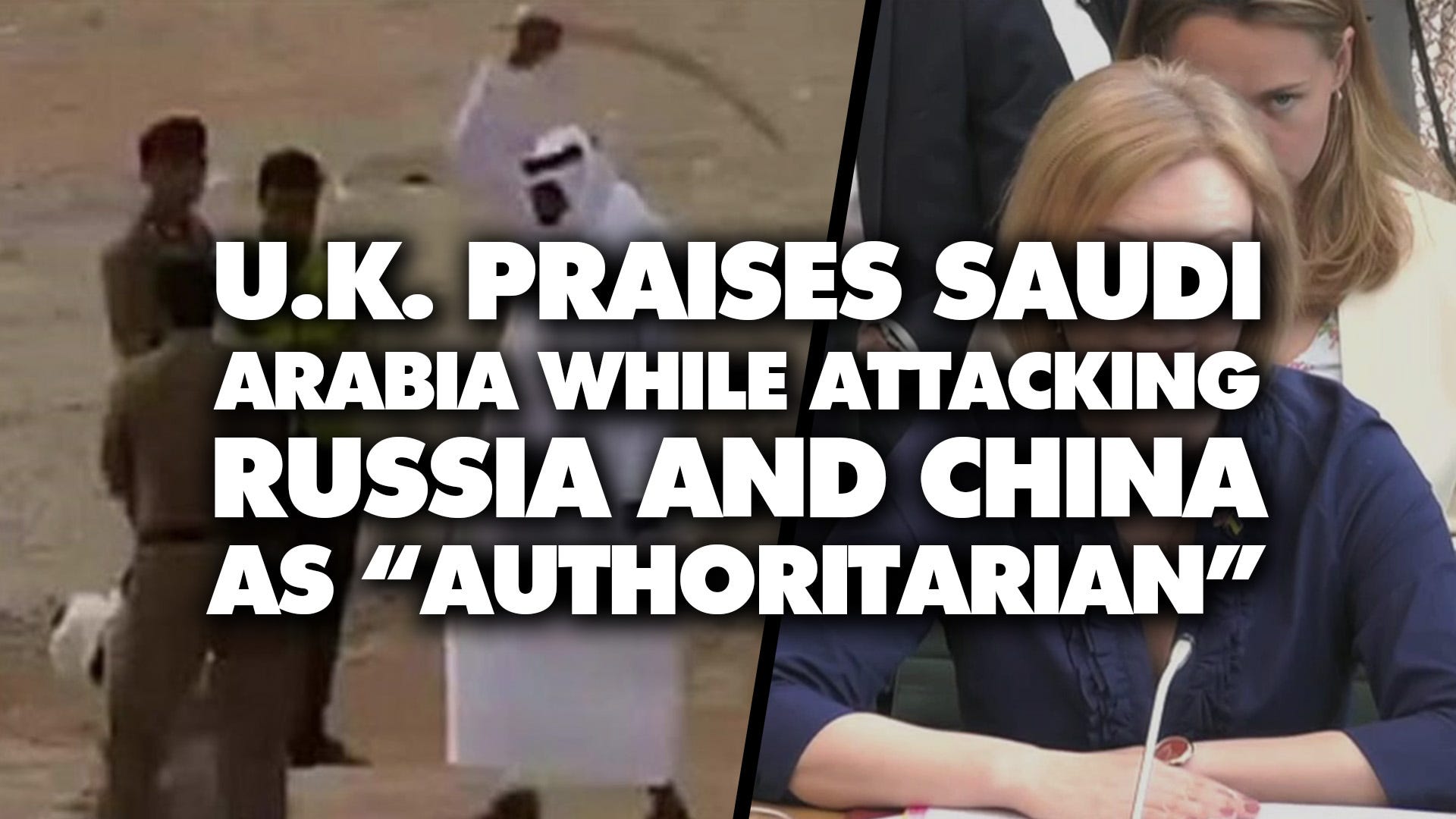


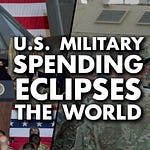

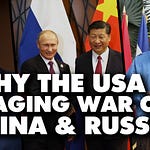
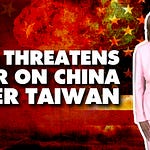



Share this post